Chief Investigators
CTET brings together a multidisciplinary team of Chief Investigators from Monash University and Queensland University of Technology, spanning a broad range of research fields central to the Centre’s mission.
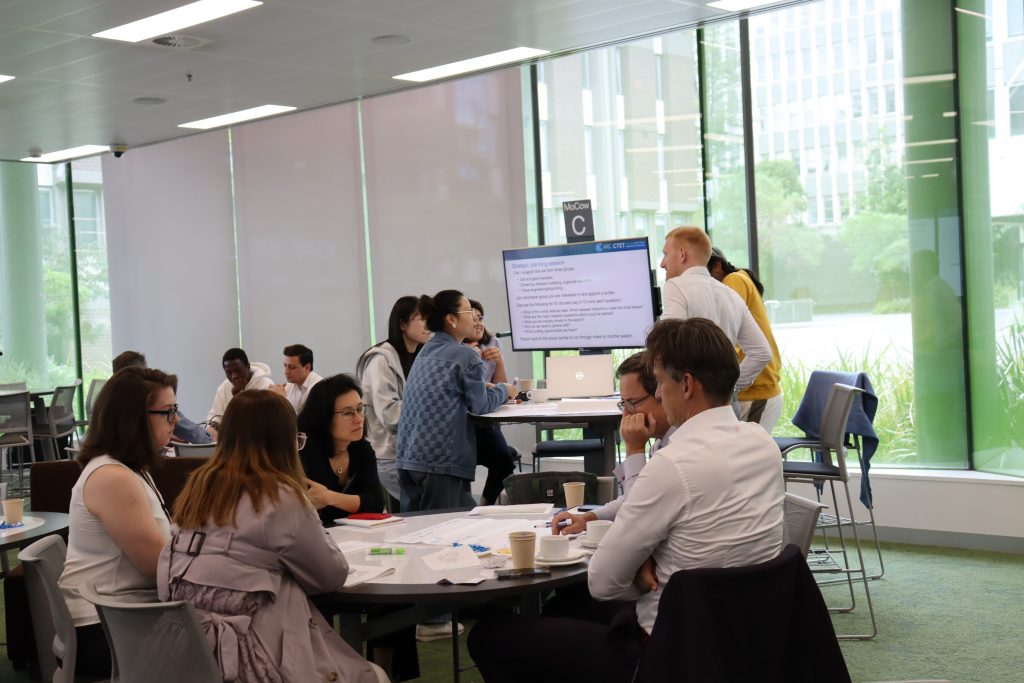

Accordion Content
Professor Amrik Sohal completed a five-year engineering apprenticeship (1971-1976) before working as a Project Engineer. He completed a Bachelor of Engineering (Hons) degree and MBA at the University of Bradford, UK, and a PhD in Operations Management. Amrik worked at the University of Bradford and the University of Melbourne before joining Monash University in 1991. Amrik’s expertise is in operations and supply chain management, as well as in quality, innovation and technology management. He is especially interested in implementation issues and how new processes, technologies and methods relate to performance improvement. His current research focuses on healthcare improvement and innovation, health supply chains and sustainable procurement.

Dr Yu Bo Yang Sun gained his PhD degree in 2018 from the School of Biomedical Sciences, Monash University, where he worked on the networks of the TGF-β/Smads signalling pathways in the animal models of kidney fibrosis. In 2018, he moved on to do his postdoc with Professor Jose Polo to work on reprogramming of adult cells into induced pluripotent stem (iPS) cells. His research focuses on establishing next-generation molecular techniques and analysis of cellular state transitions of pluripotent stem cells. Bo has received various awards during his PhD for his work in the field of nephrology and presented his work at various international conferences, including The International Society of Nephrology, Australian and New Zealand Society of Nephrology.
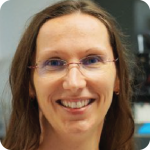
hidden
Daniela has a background in biology, graduating with a PhD in Natural Sciences from the Technical University of Munich in Germany. She was a Postdoctoral Researcher, Lecturer and Senior Lecturer at Queensland University of Technology in Brisbane, before she joined the Barts Cancer Institute at Queen Mary University of London as Reader in Bioengineering and Cancer. Daniela returned to Australia to Monash University in 2020 with a multi-departmental appointment; Department of Chemical and Biological Engineering and Department of Materials Science and Engineering. She holds a joint appointment at the Faculty of Engineering and Faculty of Medicine, Nursing and Health Sciences to enable her research at the interface of tissue engineering, biomaterials and cell biology. Daniela leads the 3D Cancer Models Team, is an ERC Consolidator Awardee and currently serves as Director of Graduate Research. Her research focuses on the role of the extracellular and cellular microenvironment in modulating cancer progression and therapy response by applying tissue-engineered technologies.
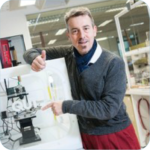
Professor Dietmar W. Hutmacher is an internationally acknowledged biomedical engineer, scholar, educator, inventor, and entrepreneur. He directs an interdisciplinary team of composed of engineers, biologists, material scientists, polymer chemists, clinicians, and veterinary surgeons at the ARC ITCC in Additive Biomanufacturing and QUT Centre in Transformative Biomimetics in Bioengineering. My research resulted in traditional scientific/academic outputs and pivotal IP & commercialization outcomes. He is a highly cited researcher across disciplinary fields; > 400 journal articles, editorship of 14 books, contributor of > 40 book chapters and > 600 conference papers, google citations 52340 and an h-index of 111.
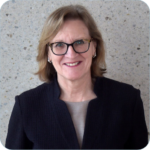
Professor Gail Risbridger is expert in prostate cancer and Men’s Health. Her laboratory-based program generates pre-clinical knowledge of potential new therapies and evidence to change clinical guidelines and practice. She uses human specimens that reflect the tumour biology and clinical heterogeneity and has one of the largest global collections of carefully curated pre-clinical models (xenografts and organoids) of prostate cancer. To advance and contribute to major international research on drug discovery, development and validation, the program shares its resources for programs/projects, and builds infrastructure and capacity in consortia. She serves on Governance bodies (e.g. Cancer Council Victoria, State Board PCFA, Freemasons Foundation for Men’s Health) and on the executive of Andrology Australia she was a leader in development of a National Men’s Health policy in 2010. She is currently an NHMRC Fellow Senior Principal Research Fellow at Monash University.

Dr Jacqui McGovern is an interdisciplinary researcher who utilizes biomaterials and tissue engineering techniques to generate in vitro and in vivo models of bone metastatic cancers (e.g. breast and prostate cancer), as well as bone-resident tumours (osteosarcoma and multiple myeloma). She also has expertise in 3D tissue models, such as skin and bone. Her research aims to use these advanced models to study fundamental interactions between cancer cells and the human bone microenvironment, with the ultimate goal of improving the quality of life for patients affected by metastatic cancer.
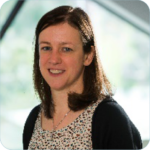
A/Prof Jess Frith is an Associate Professor in the Department of Materials Science and Engineering at Monash University and Adjunct Senior Research Fellow at the Australian Regenerative Medicine Institute. She completed her PhD at the University of York (UK) in 2009 before joining the Australian Institute for Bioengineering and Nanotechnology to broaden her skillset across biomaterials and tissue-engineering. In 2013 she was awarded an ARC DECRA and in 2015 moved to Monash to establish her research group. Jess has been recognised as a Young Tall Poppy by the Australian Institute for Policy and Science (2017) and currently sits on the leadership committee for the Australasian Society for Biomaterials and Tissue-Engineering. Jess leads an interdisciplinary team of cell biologists and bioengineers, using engineering and biomaterials-based approaches to understand how stem cells respond to the physical world around them and then apply this to regenerate damaged body tissues. Collaborating within both academia and industry, her work spans fundamental stem cell mechanobiology as well as applications in tissue-engineering and regenerative medicine. She has expertise in mesenchymal stem cell biology, mechanotransduction and tissue engineering.

Professor John Bertram undertook doctoral training at Flinders University and postdoctoral training in the Department of Biological Structure at the University of Washington. His early interest was in the stereological quantitation of lung microanatomy. After returning to Australia, he devoted research to understanding the impact of perturbations to the fetomaternal environment on kidney development, and the consequences of low nephron endowment for adult health. From 1998-2016 John served as Professor and Chair of the Department of Anatomy and Developmental Biology at Monash University. He has been invited to present at various conferences, including multiple presentations to the American Society of Nephrology Renal Week, the International Workshop on Developmental Nephrology and the International Congress of Stereology. He was President of the International Society for Stereology (ISS, 2000-2003), chaired the Xth World ISS Congress in Melbourne in 1999, is a member of the Executive and Council of the International DOHaD Society and chaired the X1th World DOHaD Congress in Melbourne in 2019.
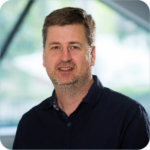
Professor John Forsythe is a materials engineer specializing in the field of biomaterials. He has led interdisciplinary research in the areas of neural tissue engineering, brain repair, neurobionics, cartilage repair and stem cell expansion and differentiation. While working across a wide range of fields, his focus has centered on the development of innovative and responsive biomaterials. These include microfluidic generation of microgels, 3D bioprinting, self-assembling peptide hydrogels, light responsive hydrogels, and electroactive biomaterials. This research draws upon his strong background in chemistry and materials engineering.
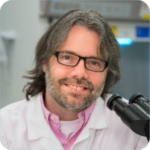
Professor Jose Maria Polo began his graduate studies at Albert Einstein College of Medicine in New York, where he worked on the transcriptional mechanism of the BCL6 repression complex in lymphomagenesis and B-cell maturation. In 2008, he obtained his PhD and moved to Boston to the Harvard Stem Cell Institute to work on reprogramming of adult cells into induced pluripotent stem (iPS) cells. In particular, his work focused on the acquisition of immortality and the existence of epigenetic memory during reprogramming. In June 2011, Jose established his independent research group at Monash University, where he holds appointments to the departments of Anatomy and Developmental Biology and to the Australian Regenerative Medicine Institute. In 2012, Jose was awarded a NHMRC Career Development Fellowship, in 2014 a Silvia and Charles Viertel Senior Medical Research Fellowship and in 2018 a Future Fellowship to continue his work in the molecular mechanism governing the reprogramming process and the epigenetic mechanism underpinning cell fate. In 2016, he co-founded Mogrify Ltd to translate reprogramming technologies into therapies.

A/Prof Jyotsna Batra is an Advance Queensland Industry research Fellow and Laboratory Head at the School of Biomedical Sciences, Queensland University of Technology, Brisbane, Australia. She has studied Biochemistry towards a Master’s degree and obtained her PhD in Biotechnology working on the genetic complexity of the heredity disorders (2008). Dr Batra is leading a research group on molecular genetics of prostate cancer. Her current research focus is to identify cancer risk-associated genetic variants and to understand their molecular consequences on cancer initiation and progression. She aims to develop better biomarker to detect cancer early and to identify genetic biomarkers which can distinguish slow growing disease from very aggressive prostate cancer at an early stage, so that better decision on therapeutic interventions can be made. Dr Batra has contributed to >150 research articles, including that in high impact journals such as Cancer Discovery, Nature Genetics (H-index= 35). A/Prof Batra has received several poster and oral prizes for her research work (N=45). She has also been a finalist for the prestigious Qld ASMR Postdoctoral and Senior Researcher Awards and Women in Technology (WiT) Rising Star Award and Research Leader Awards and has been awarded QUT VC Excellence (2015) and Performance Awards (2016). Nationally, She has been recognised by Cancer Australia Researcher of the Year (2018) and Qld Young Tall Poppy (2019) Awards. She is funded by NHMRC, Cancer Council Queensland and Can TOO, Cure Cancer and Cancer Australia Foundation Young Investigator grants and a recent DoD Idea development grant (>8million AUD in funding).

Associate Professor Larisa Haupt is the Stem Cell and Neurogenesis Group Leader and Diagnostics and Functional Genomics Program Co-Leader within the Centre for Genomics and Personalised Health at QUT. A/Prof Haupt has extensive research expertise in the extracellular matrix, stem cells, cell and molecular biology and human molecular genetics. Her research team has a particular interest in the role of the extracellular matrix, with a focus on the proteoglycans, in the regulation and dysregulation of cell behaviour including lineage specification and cancer. A/Prof Haupt and her team utilise molecular and cell biological in two- and three-dimensional culture models as well as next generation sequencing platforms to unravel these complex mechanisms in humans. She and her team have identified a role for HSPGs in human neural stem cells (hNSC) proliferation and lineage specification and a potential role for these important proteins in breast cancer tumorgenicity.

Dr Laura Bray is a research group leader at the Queensland University of Technology and is the Deputy Director of the ARC Training Centre and Leader of the Tissue Engineering Technologies Theme. Laura is a cell biologist and bioengineer with interests in 3D cell culture, particularly in angiogenesis and vascularisation, as well as cell interactions with their surrounding microenvironment. Through the use of state of the art matrix engineering techniques, her work has led to a number of significant advances in knowledge in the area of 3D tissue engineering and culture techniques. Her work has helped to clarify the potential role of the matrix environment in 3D cell cultivation and has provided new insights into mimicking the natural and diseased tissue environment in vitro.
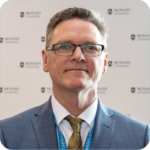
Laurence is CTET Centre Director, Advanced Materials and Manufacturing Theme Leader and Centre Chief Ivestigator. Laurence is a material scientist with interests in cell therapies, particularly from the control of cell-material interactions and manufacturing perspective. He obtained his PhD from the Australian National University in colloid science in 1996. After postdoctoral appointments, he joined CSIRO and worked to deliver technology solutions to industry partners. He joined Monash University in 2015 and is a Professor in the Materials Science and Engineering department. He has a deep capability in polymeric medical materials and surface coatings, controlled radical polymerisation methodologies, stem cell biology/manufacturing (both primary and pluripotent cells) and some aspects of tissue engineering/regenerative medicine (skin, muscle, wound healing). He has a significant activity in material development for bioprinting for cardiac, neural, muscle and vascular applications. He has an active research program in materials and surface coatings for medical device and antibacterial applications. He also leads translational research activities through his role as Director of the SPARK Monash Program and regional Co-director of SPARK Oceania.
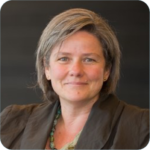
Professor Mibel Aguilar is a Bioanalytical and Biophysical Chemist at Monash University whose research focuses on biomembrane nanotechnology, peptide biomaterials and peptidomimetic drug that allow us to exploit the potential of peptides as drugs and biomaterials. Her group’s work has transformed our understanding of how biomembranes control cell-based systems and introduced a new approach to the design of proteolytically stable bioactive peptides and biomaterials. Her group is currently applying their technology to the development of new compounds for treatment of cardiovascular disease and also developing novel self-assembling systems for the production of new biomaterials and nanomaterials for tissue engineering. Our membrane nanotechnology projects involve the development of new biosensor methods for the analysis of membrane-mediated processes such as apoptosis, G protein-coupled receptor function and antimicrobial peptide function.

Dr Mark Adams is a cell and molecular biologist with extensive experience in identifying cell therapies to augment and improve current clinical practice. He has extensive experience employing a wide array of in vitro and ex vivo approaches to drive his translational cancer research. At the Queensland University of Technology, Dr Adams leads a team within the Cancer and Ageing Research Program (CARP) based at the Translational Research Institute (TRI), Brisbane. His research focuses on exploiting cellular genome instability and cell cycle control to identify novel therapeutic avenues and improve solid malignancy response to therapy. Dr Adams has received support from the NHMRC, the International Lung Cancer Foundation and Cure Cancer Australia.
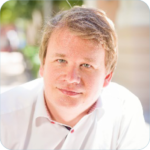
Prof Martin Obschonka is Director of the Australian Centre for Entrepreneurship Research and Professor in Entrepreneurship at QUT Business School. He is a global expert in the psychology of entrepreneurship. In 2018, he was appointed as International Faculty Fellow at MIT Sloan School of Management. In 2019, The Australian ranked him among the top performing 40 researchers in Australia in his generation. His research spans applied psychology, entrepreneurship, vocational behaviour, economic culture, and social, economic, and technological change. He is Associated Editor of Small Business Economics and International Journal of Psychology. He is on the Editorial Board of Journal of Business Venturing, Journal of Vocational Behavior, Current Research in Ecological and Social Psychology, and Management Review Quarterly. He has a significant activity in academic entrepreneurship and entrepreneurial eco-systems and is interested in the application of new scientific knowledge in society.

Prof Nathan Subramaniam is an NHMRC Senior Research Fellow and Group Leader, Hepatogenomics Research at QUT, and Centre CI. Nathan is a cell biologist by training and is interested in understanding and treating liver and iron-related disease. He has expertise in cell and molecular biology, genomics, functional genomics, animal models of disease, primary cell isolation, 2 and 3D tissue culture models, development of organoids, next-generation sequencing, and identification of potential drug candidates through various screening approaches. He is also Deputy Director and co-Program Lead for Diagnostic and Functional Genomics in the newly established Centre for Genomics and Personalised Health at QUT.

Professor Neil Cameron undertook his BSc (1987-1991) and PhD (1991-1994) at the University of Strathclyde in Glasgow, UK. Following two post-doctoral periods at Eindhoven University of Technology then Heriot-Watt University, he was appointed Lecturer (Assistant Professor) in the Department of Chemistry at Durham University (UK) in Oct 1997. In 2005 he was promoted to Reader (Associate Professor) then in October 2008 to Professor. In September 2014, he moved to Melbourne to become the Monash-Warwick Alliance Professor of Polymer Materials, based at Monash University. In July 2019 he became Head of the Department of Materials Science & Engineering at Monash University. His research is focused on the development of novel polymeric materials and biomaterials, with particular emphasis on scaffolds for 3D in vitro cell culture and tissue engineering, self-assembling polypeptides, peptide-synthetic polymer hybrids and sugar-containing polymers (glycopolymers). He was awarded a DTI SMART Award (2001), the Macro Group UK Young Researcher’s Medal (2003), an ICI Strategic Fund Award (2004), a Durham University Christopherson/Knott Fellowship (2008) and he was a member of the team that won the RSC’s Rita and John Cornforth award (2011).
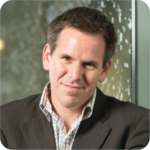
Professor Nico Voelcker leads the Process Engineeering Theme. He is the Scientific Director of the Melbourne Centre for Nanofabrication, Professor at the Monash Institute of Pharmaceutical Sciences at Monash University and Science Leader at the Commonwealth Scientific and Industrial Research Organisation CSIRO). The core research activity in his laboratory is the study of silicon-based nanostructures and their surface chemistry. Following from this more fundamental research, his focus is on the application of silicon-based nanostructured materials in biosensors, biochips, drug delivery and regenerative medicine. He has authored over 420 peer-reviewed journal articles with over 14,000 citations, h-index 58, and has filed over 30 patents. He has received fellowships from the German Research Foundation (DFG), the CSIRO, the Alexander von Humboldt Foundation, is a recipient of the Tall Poppy Science Award, a finalist for the South Australian Scientist of the Year 2015 and the Australian Innovation Challenge. And he has served on the College of Experts of the Australian Research Council and is a member of the Australian Academy of Technology and Engineering.
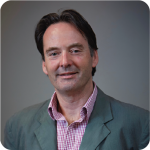
Peter Currie received his PhD in Drosophila genetics from Syracuse University, New York, USA. He undertook postdoctoral training in zebrafish development at the Imperial Cancer Research Fund (now Cancer Research UK) in London, UK. He has worked as an independent laboratory head at the UK Medical Research Council Human Genetics Unit in Edinburgh, UK and the Victor Chang Cardiac Research Institute in Sydney, Australia where he headed a research programme focused on skeletal muscle development and regeneration.
His work is centered on understanding how the small freshwater zebrafish, an important model in biomedical research, is able to build and regenerate skeletal muscle and how this information can be used to design better treatments for muscle diseases. He is currently the Director of the Australian Regenerative Medicine Institute (ARMI).

Associate Professor Rebecca Lim has been researching the potential and limitations of amniotic epithelial cells in regenerative medicine since 2008. Her research team has uncovered mechanisms through which the hAECs modulate inflammatory events and bolster endogenous repair processes. They have demonstrated that hAECs are able to directly influence the stem cell niche in order to bring about tissue regeneration. This work has now progressed to clinical trials across multiple clinical indications including premature babies with bronchopulmonary dysplasia and cerebral palsy, and adults with liver cirrhosis, Crohn’s related perianal fistulas and acute ischaemic stroke. Most recently her team has begun to develop an extracellular vesicle biology arm to their research, in an effort to develop a cost-effective approach to regenerative medicine for urgent unmet medical needs. A/Prof Lim holds joint appointments with the Department of Obstetrics and Gynaecology, Monash University and The Ritchie Centre, Hudson Institute of Medical Research. A/Prof Lim is an NHMRC Career Development Fellow (Industry) where her work aims to bring novel automated solutions to cell manufacturing for the regenerative medicine sector. She was awarded an NHMRC Research Excellence Award in 2019. She is the Scientific Director of the Cell Therapy and Regenerative Medicine Platform at the Monash Health and Translation Precinct, which manufactures cell-based products for early phase clinical trials. She is passionate about clinical translation, patient advocacy and discovery research.

Professor Rebekah Russell-Bennett’s research draws on marketing and service design techniques to develop innovation services that improve the lives of people and the health of the planet. Typically she uses technology to create scalable, cost-effective yet tailored solutions for social problems. Rebekah uses service design to develop behavioural insights and develop evidence-based solutions. She is a global leader in shaping the debate and impact of social marketing as a behaviour change approach. Rebekah is the program leader of the Services Thinking for Social Problems research group at Queensland University of Technology (see https://research.qut.edu.au/servicesocialmarketing/) and has worked on major service design projects in the electricity, education and health sectors. She is also the acting director for the QUT Centre for Behavioural Economics, Society and Technology (BEST). Rebekah lectures the product and service innovation classes at both undergraduate and postgraduate levels and has won innovation awards for both research and teaching.
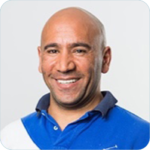
Accordion Content
Dr Roey Elnathan gained his PhD in chemistry in 2012 from Tel Aviv University. Postdoctoral research positions held include research fellow in nanobiotechnology (2012–2015) and Foundation Fellow in nanobiotechnology (2015–2017) at the University of South Australia. He is an ARC DECRA Recipient and Senior Research Fellow in the Faculty of Pharmacy and Pharmaceutical Sciences and Adjunct Senior Lecturer in the Department of Materials Science and Engineering at Monash University. His research interests lie in the field of engineered nano–bio cellular interfaces, especially in the fabrication and design of nanotopographies optimized to maximize bioactive cargo delivery and orchestrating specific cellular processes. His research expertise, particularly in the design and fabrication of nanostructures, provides major opportunities for collaboration and commercialisation with industry partners in nanobiotechnology and related disciplines.

Dr Roland Steck is the Medical Engineering Research Facility Operations Manager at the Queensland University of Technology (QUT). He is an expert in biomedical engineering and regenerative medicine, with research that primarily focuses on orthopaedics and trauma. He has expertise in animal models for musculoskeletal research, microCT imaging and evaluation and mechanical testing of musculoskeletal tissues and implants.

Dr Siamak Saifzadeh is a highly experienced Veterinary Research Scientist who was instrumental in establishing several preclinical animal models at QUT. He has been a CI on over $1.5 million in research grants. Since commencing in his role at the QUT Medical Engineering Research facility (MERF) as a veterinary researcher, he has promoted research partnerships and links with national and international research groups. He has conducted animal models for research projects with a particular focus on medical engineering and regenerative medicine.
Siamak’s research has made significant contributions to the field of pre-clinical research. He has been actively involved in the design and execution of the novel animal models with a focus on orthopaedics and dental disciplines, such as: ovine tibial segmental defect, dental implant surface modification, and osteochondral defect models, as well as swine periodontal defect, osteochondral and breast augmentation models.
Siamak has published more than 40 peer reviewed papers. Additionally, he has also published in prestigious veterinary journals such as Veterinary Surgery, Reproduction in Domestic Animals, and Journal of American Veterinary Medical Association.
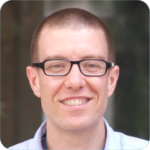
Dr Simon Corrie completed his undergraduate degree in Chemical Engineering and PhD in Physical Chemistry at the University of Queensland, before undertaking postdoctoral studies at the HPV Research Laboratory at the University of Washington, Seattle. After further postdoctoral studies in Australia developing wearable microneedle array diagnostics, he joined the Chemical Engineering Department at Monash University in mid-2016 to establish the Nanosensor Engineering Lab. He is a recipient of the Australian Research Council’s DECRA Award, is a Chief Investigator in the ARC Centre of Excellence in BioNano Science, and is the Diagnostics Platform Leader at the BioPRIA Institute. His research interests lie in developing nano-particles and proteins for applications including in vivo and in vitro bio-sensing, bio-assays and medical devices.

Dr Soniya Yambem is a device physicist with extensive experience in fabricating flexible electronic devices for various applications. At QUT, Soniya’s work is focussed on optoelectronic and bio-electronic interface devices for developing sensors including biosensors for bioelectronic and bionic applications. Before joining QUT, Soniya worked as a post-doctoral researcher with Prof Paul Burn at Centre for Organic Photonics and Electronics, University of Queensland. In 2015, Soniya was awarded QUT’s Vice Chancellor’s Research Fellowship in Biomedical Engineering and Medical Physics and in 2018 Soniya transitioned to a faculty position at QUT. Soniya completed her Ph.D. at the University of Houston (UH), Texas, USA and she also holds two Master degree in Physics; one from UH and another from University of Delhi, India.
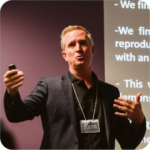
Accordion Content
Dr Stephen Whyte is a Research Fellow in Behavioural Economics at the Centre for Behavioural Economics, Society and Technology (BEST) and School of Economics and Finance, Queensland University of Technology (QUT), Australia. His research focus explores large-scale decision making in applied health settings. His work takes a multi-disciplinary approach in studying human behaviour, with work that bridges the fields of behavioural & micro-economics, and personality & social psychology.
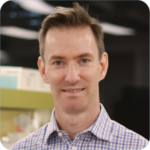
A/Prof Tim Dargaville is an ARC Future Fellow, polymer chemist and leader of the Polymer Networks and Biomaterials group at QUT. His research is motivated by a desire to: 1) understand the role of molecular structure and morphology in polymer processing as applied to additive manufacturing, 2) discover new hydrophilic materials with minimal foreign body response for use in cell-therapies, and 3) use polymers as sophisticated drug delivery vehicles for in vivo applications. Prior to joining QUT Tim worked at Sandia National Laboratories on piezoelectric fluoropolymers and how they perform in low Earth orbit. Tim collaborates extensively with groups around the world and is an active consultant to industry.

Associate Professor Tracy Heng is Deputy Co-Head of Infection and Immunity Program at Monash Biomedicine Discovery Institute, and Head of Stem Cells and Translational Immunology Laboratory in the Department of Anatomy and Developmental Biology. Tracy’s research intersects immunology, stem cells and cell therapy. Her PhD was focussed on improving immune function in ageing and disease. She undertook postdoctoral training at Harvard Medical School and established the Immunological Genome Project (immgen.org). At Monash, her team seeks to understand how immune cells impede, mediate or facilitate stem cell transplantation and cell therapy. Tracy collaborates closely with industry and has been awarded an ARC Postdoctoral Industry Fellowship, NHMRC R.D. Wright Biomedical Career Development Fellowship, the 2015 Young Tall Poppy Science Award (Australian Institute of Policy and Science) and the 2016 Metcalf Prize for Stem Cell Research (National Stem Cell Foundation of Australia). She is an Associate Member of the Australian Academy of Health and Medical Sciences.

Prof Travis Klein is the Director of the Centre for Biomedical Technologies at the Queensland University of Technology (QUT). He is an expert in tissue engineering and regenerative medicine, with research that primarily focuses on developing long-term regenerative therapies for treating cartilage defects. He is a CI on three ARC Training Centres and has expertise in developing and using 3D cell culture systems, functionalised biomaterials, biofabrication approaches and mechanical stimulation bioreactors.
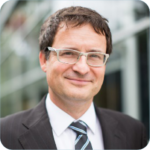
Accordion Content
Professor Uwe Dulleck is director of QUT’s Centre for Behavioural Economics, Society and Technology (BEST), professor of Economics at the Queensland University of Technology (QUT) and Honorary Professor of Behavioural Economics at the Crawford School of Public Policy at ANU. He obtained his PhD in Economics at the University of Humboldt (Germany) in 1999. Before joining QUT, he was a Professor at the Universities of Linz of Vienna in Austria. He is an international expert in applied behavioural economics as well as in the economics of expert services. He published in the leading Economics Journals like the American Economic Review, Journal of Economic Literature, Economic Journal and Journal of Public Economics as well as in Nature Biotechnology and JAMA Open Network. His research was covered was covered by leading Newspapers including the New York Times, the Sydney Morning Herald and the Economist. Uwe has been awarded six ARC grants since 2006 and is strongly engaged in research collaborations with industry and government partners applying Behavioural Economics to solve real world problems. Among industry partners are and have been Sunsuper, Westpac, the Commonwealth Bank, Autonom Talent and Aurora. Government partners include the Australian Government, Department of Education and Training and Department of Industry, Innovation and Science, as well as commonwealth agencies, ASIC, the ATO and IP Australia, on state level he has worked with several Victorian and Queensland departments. Current He is a member of the academic advisory board of the Department of Prime Minister and Cabinet’s Behavioural Economics Team (BETA) and member of the Economic Society’s (ESA) National Economic Panel.
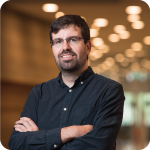
Dr Victor J. Cadarso is Senior Lecturer in the Department of Mechanical and Aerospace Engineering and Research Leader at the Centre to Impact Antimicrobial Resistance at Monash University. He completed his PhD in physics at the Autonomous University of Barcelona (UAB) working at the Barcelona Institute for Microelectronics (IMB-CNM, CSIC) before joining the Microsystems Laboratory at the Swiss Federal Institute of Technology in Lausanne (EPFL) to expand his expertise in sensor and polymer technologies. In 2013 he was awarded the prestigious Ambizione Fellowship by the Swiss National Science Foundation (SNSF) to engineer biosensors by means of micro and nanotechnology approaches. In 2016 he joined the Faculty of Engineering at Monash to establish his own research group. His work is centered in the use of micro and nanotechnologies for the implementation of biosurfaces and microsystems, including electrochemical, optical and mechanical sensors, integration of microfluidic systems and the implementation of microoptical elements. He leads a multidisciplinary team that includes engineers and biologists for the use of these technologies into biomedical applications. Beyond his academic work, Victor has also co-founded two high tech start up companies and has extensive experience in academia – industry technology transfer collaborations.

A/Prof Yi-Chin Toh is a Future Fellow and Associate Professor at the Queensland University of Technology. She obtained her B.Eng in Chemical Engineering and Ph.D in Bioengineering from the National University of Singapore in 2001 and 2008 respectively. Yi-Chin’s major scientific contribution is in the advancement of microfluidic tissue models for applications in drug testing and experimental biology. To date, she has published over 50 papers in leading scientific journals such as Biomaterials and Lab on a Chip. Her current research interest is in engineering multi-scale tissue models to mimic complex biological interactions during human development and diseases, as well as translating them into scalable platforms for disease modeling and drug testing applications. Her lab is also working on integrating microfluidics and biofabrication technologies to realise a new generation of human-on-chips. Dr Toh is a recipient of the Australia Research Council Future Fellowship, National University of Singapore Research Scholarship, A*STAR Graduate Scholarship and A*STAR International Fellowship.



